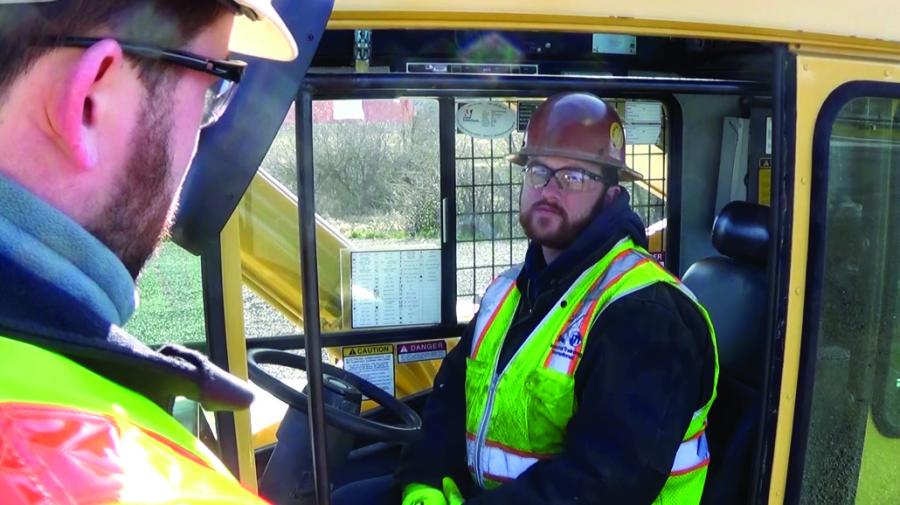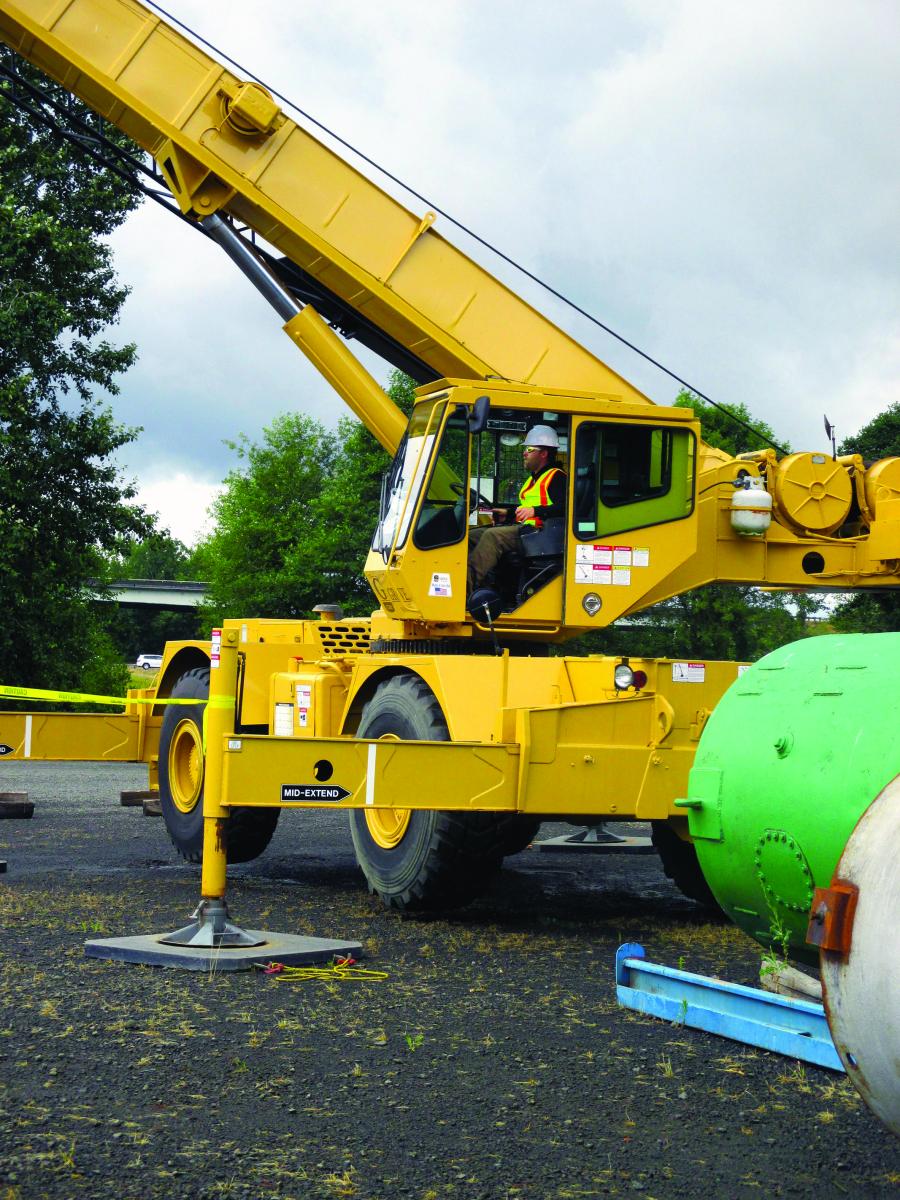On December 10, 2018, the Occupational Safety and Health Administration (OSHA) made its certification requirement for construction crane operators official. To be fully qualified, an operator must be trained and evaluated by his employer to make sure he can safely operate his assigned crane in the environment where he'll be working. Employers carry the burden of determining an operator's ability to recognize and avert risk. The crane and rigging industry is charting new territory where operator evaluation is concerned.
Eight years after the rule was originally published, and 15 years after the Cranes and Derricks Advisory Committee (C-DAC) finished its revision of the crane rule, OSHA resolved the last remaining issues that had long delayed implementation of a standard crane operator certification program. Just as there are standards for operator competency, there are responsibilities that employers of crane operators must meet. While employers have, for decades, had responsibility for employee qualifications, the new crane operator evaluation has more specificity and documentation requirements.
As of February 7, 2019, employers are responsible for having operators evaluated and deemed fully qualified. However, OSHA has delayed full enforcement of the evaluation requirement until mid-April.
OSHA will enforce its employer evaluation responsibility requirements, which must be completed before employees are allowed to work on their own. The temporary policy only applies to the documentation requirement, and the agency is fully enforcing the requirement that employers evaluate operators before affording them opportunities to operate cranes independently.
Operators must be certified by type of crane, but certification by type and capacity is acceptable. A nationally-accredited certification organization must supply the exams used to certify the operator. To be deemed fully qualified, an operator also must be trained and evaluated, now the responsibility of the operator's employer. Site owners may request documentation from employers, or test operators on site.
Knowledge, Skills, and Judgment
The operator evaluation entails a demonstration of the skills and knowledge necessary to operate the equipment safely and the ability to recognize and avert risks associated with the operation. As the National Center for Construction Education and Research (NCCER) explains, the skills and knowledge include those specific to the crane's safety devices, operational aids, and software, all in conjunction with the size and configuration of the crane to be operated. This includes machine lifting capacity, boom length, attachments, and counterweight set-up. The evaluation must also cover the operator's ability to perform the hoisting activities required for the task.
Evaluations must be conducted by someone who has the "knowledge, training, and experience necessary" to assess the operator. "While a current or former crane operator might also be an evaluator, the knowledge, training, and experience needed to operate a crane may not be sufficient," notes the National Commission for the Certification of Crane Operators (NCCCO). "You cannot rely on OSHA's standard definition of a ‘qualified person' here."
The documented evaluation must be available at the work site and must include the names of the operator and evaluator; the date of the evaluation; and the make, model and configuration of the crane used in the evaluation. Once the operator has been successfully evaluated based on all of these criteria, he or she may operate similar equipment if it can be demonstrated that the operation does not require considerably different skills, knowledge, or ability to recognize and avert risk.
Determining an operator's ability to avert risk is "a call the employer's going to have to make based on his experience with that operator, the operator's training and background, and how they operate the equipment," said Vernon Preston, regulatory analyst, OSHA construction standards and guidance, Washington, D.C. "The employer will have to determine that the operator has that ability."
When OSHA drafted the certification rule, "we proposed using the term ‘knowledge, skills, and judgment,' " continues Preston. "We got comments back during rulemaking saying ‘judgment' seemed kind of an unclear term — did it mean evaluating the operator's judgment that day or every work day? What we tried to do is boil down what that ‘judgment' was being used to do. It's the ability to recognize and avert risk — that operator using his judgment to assure the crane is being operated safely, competently, and in a manner that avoids hazardous situations."
Employer Burden or Training Boon?
Both certification organizations and training companies are schooling employers on their responsibilities. NCCCO has been conducting powerpoint presentations on OSHA qualifications and employer responsibilities since last fall. The presentations go hand in hand with employer guides the certification organization has published on the training, certification, and evaluation requirements covered by the OSHA rule.
"Since OSHA has identified a three-step process to achieving qualification as a crane operator, it seemed to make sense to create individual guides for each," Graham Brent, NCCCO executive director, commented when the guides were released late last year. In March, NCCCO also created a list of eight questions employers might have in navigating OSHA's new rules for crane operator qualifications. They include questions related to operator evaluations and who is deemed qualified to perform the evaluations.
With crane operator training and certification classes already in place, Crane Industry Services (CIS), Carrollton, Ga.; Industrial Training International (ITI), Woodland, Wash.; and Crane Inspection & Certification Bureau (CICB), Orlando, Fla., are just three of many training companies that have taken a proactive approach to operator evaluation. They've created programs specifically instructing employers and evaluators on how to conduct assessments.
"We're fielding a lot of questions from unions and employers about the confusion around the new OSHA rules language. The rule is not machine-specific, but unless you have the same make and model with the same configuration in your fleet, there can be confusion," explains Debbie Dickinson, CEO of CIS.
CIS will work with the client before dispatching a crew to provide third-party crane operator evaluations. CIS trainers also can train the client's staff members to perform in-house evaluations. The goal is to assist client companies, some who may not have anyone on staff with the experience, training, and credentials to conduct evaluations, or others who may have qualified staff who don't have the time to perform evaluations in house.
"The evaluation process requires initial planning to determine how many different machines are in a given fleet, how many of them are the same make, model, configuration, and whether they are used for the same type of work," adds Dickinson.
CICB announced in March it has added operator evaluator training to its mobile crane and rigging safety awareness program. "Although certification provides an independent assessment of general baseline knowledge and skills, the employer evaluation is necessary to verify operator competence, specifically focusing on the safe operation of equipment and performance of tasks unique to the employer's work site," Larry Kime, CICB's senior instructor/technical advisor, said in announcing the new instruction offering.
Crane operators commonly work as subcontractors and frequently transition from job site to job site. OSHA believes that the employer's obligation to evaluate crane operator competency is critical to ensure safe equipment operations on construction work sites, notes CICB.
ITI is developing a course to provide guidance for an employer's qualified evaluator to assess an operator's ability to avert risk. After a review of the program, the consensus was these evaluations should test the operator's ability in the assigned crane to perform operational functions, read and understand the operator's manual, and match the software settings to the crane's configuration. The operator also must be able to correctly and accurately respond to hand and voice signals.
"The detail here is that the operator knows all of these things for the specific crane they've been assigned, which takes study and familiarization," said Mike Parnell, ITI senior consultant and company founder.
Creating Value in Data
What happens to the evaluation data, and how can it be utilized effectively? Dickinson of CIS believes it is useless for the employer to go to the effort of completing operator evaluations and then simply store the data. "It does very little good if you're trying to make a decision about who to put on what jobs, and who has been evaluated on which pieces of equipment if you have to search through records. The ready record must show that an operator is only operating equipment for which he is qualified. It needs to be a sensible record that can be accessed at a moment's notice," she said.
Dickinson is keen on iReportSource Inc., an instant record-keeping software program that offers the user info on what his workforce is able to do, just in time, from any location. From a computer, tablet, or cell the user can see all the different areas in which the operator has been trained and certified, the evaluations he or she has had, and his or her safety record. Beyond qualifications, it can track a person's performance. Working with iReportSource Inc., CIS has customized an online reporting tool for crane users integrating all the pieces of project planning into a daily report. Crane operator evaluations are one more piece of data that can be added to the overall big picture.
An operator's work history is often a collection of certificates, logs, and qualifications split between operator and employer. With this in mind, ITI is developing a phone app for operators to log work experience by equipment type and hours. A mobile log book, ITI's OperatorPro will also facilitate evaluations, saving a record between the operator and evaluator, viewable by employers and contractors upon request.
"Logging work history is important for operators who may travel from site to site for work, or from one employer to the next. Much of this history is not visible when the operator shows up for work with a new employer, save for a collection of certificates and log books," explains Parnell. The OperatorPro app pilot will be available for select users at the end of April, and will open in release 1.0 shortly afterward.
The bottom line on operator evaluations, said Parnell, is that the employer has always had the duty to ensure its operators are qualified; the OSHA rule simply formalizes the evaluation. The key, he adds, is how well the operator knows the operational and safety characteristics of the crane they've been assigned to operate. "An employer can be confident when they see their operator doing the basics well: Completing daily inspection logs, requesting replacement parts as needed, operating the crane smoothly, proficiently interacting with the crane's software, and communicating effectively with riggers and signalpersons." CQ
This story also appears on Crane Equipment Guide.
Today's top stories

















